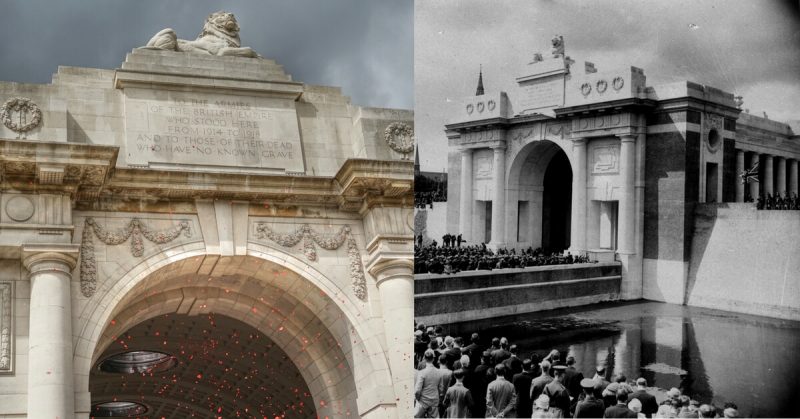The Commonwealth War Graves Commission (CWGC) marked the 90th anniversary of the Menin Gate’s unveiling, and dedication with a special ceremony at 11 am on 24 July 2017.
War History Online was invited, and Jo Segers attended the ceremony for us.
After a welcome by CWGC’s Director General, Mrs. Victoria Wallace the ambassadors of New Zealand, Canada, Australia and Britan spoke historical words and poems, including “In Flanders Fields” written by John Mc Crae.
Mrs. Emma Brown sang a beautiful adaptation of “In Flanders Fields,” with music played by the Royal Band of the Belgian Airforce.
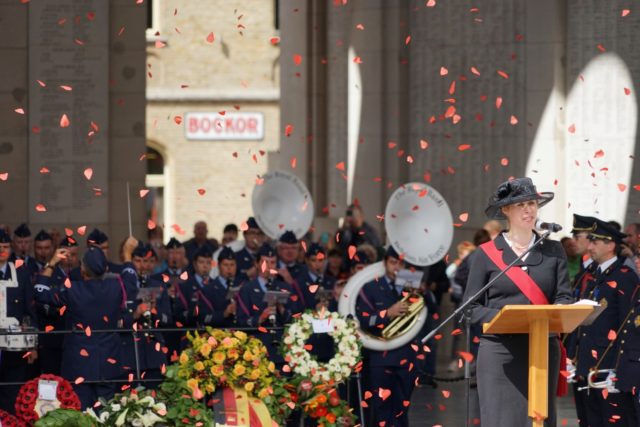
The Last Post Association played the Last Post, followed by the South African Ambassador spoke the haunting words of the poem “They shall not grow old, as we that are left grow old.”
After an impressive one-minute silence wreaths were laid and the ceremony was ended by the Indian Counsellor who said:
When you go home
Tell them of us and say
For your tomorrow
We gave our today
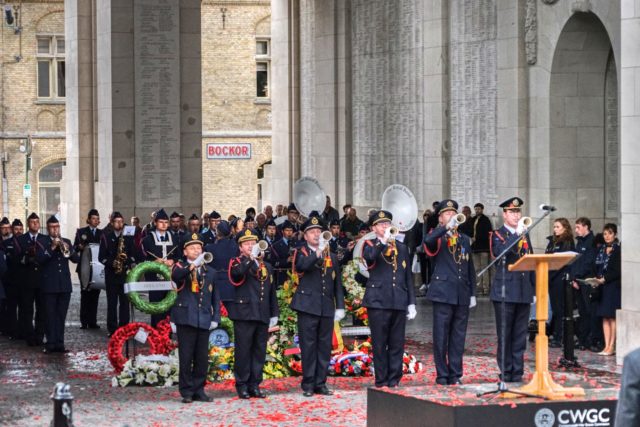
The Menin Gate
The Menin Gate bears the names of over 54,000 officers and men that have no known grave and were killed in the Ypres Salient during the First World War. It was the first memorial to the missing that was erected after the end of the war by the (now) Commonwealth War Graves Commission.
Besides the missing it also honors all those who served there, bearing an inscription devised by writer Rudyard Kipling, who was the first Literary Advisor to the Commission:
To the armies of the British Empire who stood here from 1914 to 1918 and to those of their dead who have no known grave
CWGC’s Director General, Mrs. Victoria Wallace said about the memorial: “The Menin Gate has been the focus of pilgrimage for thousands for 90 years. The first great memorial to the missing, it is an extraordinarily special place of commemoration, and its significance has been enhanced by the devotions of the people of Ypres, who hold their daily Last Post event under its arches every evening. It is hugely gratifying to see so many young people visiting the Gate, ensuring that the names of the missing live forever.”
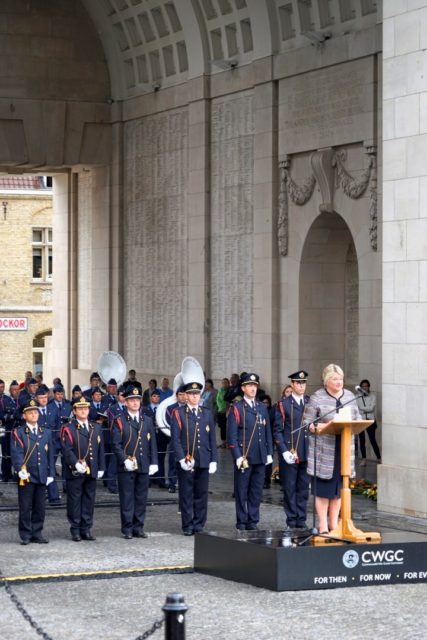
Thousands of veterans and families and family members attended the unveiling of the memorial by King Albert I of Belgium and Field Marshal Lord Plumer on 24 July 1927.
At the end of the ceremony buglers of the Somerset Light Infantry sounded the Last Post and pipers of the Scots Guards played a lament.
Led by the local fire brigade, the sounding the Last Post in the Memorial quickly became a daily ritual which takes place at 8 pm. Only when the Germans again occupied Belgium did the ceremony not take place. On the day of liberation the ceremony was resumed, and now often thousands come to the ceremony every day to pay their respect.
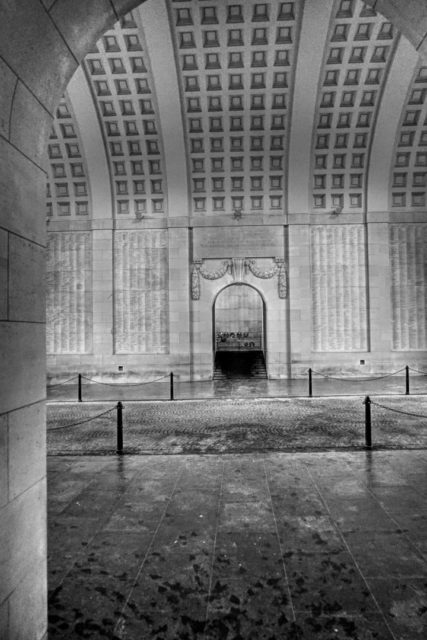
The site of the Menin Gate was chosen because of the hundreds of thousands of men who passed through it on their way to the battlefields, many of which would never return. It commemorates casualties from the forces of Australia, Canada, India, South Africa and the United Kingdom.
In his speech at the unveiling in 1927, Lord Plumer said: “It was resolved that here at Ypres, where so many of the ‘Missing’ are known to have fallen, there should be erected a memorial worthy of them which should give expression to the nation’s gratitude for their sacrifice and its sympathy with those who mourned them.
A memorial has been erected which, in its simple grandeur, fulfills this object, and now it can be said of each one in whose honor we are assembled here today: ‘He is not missing; he is here.’”
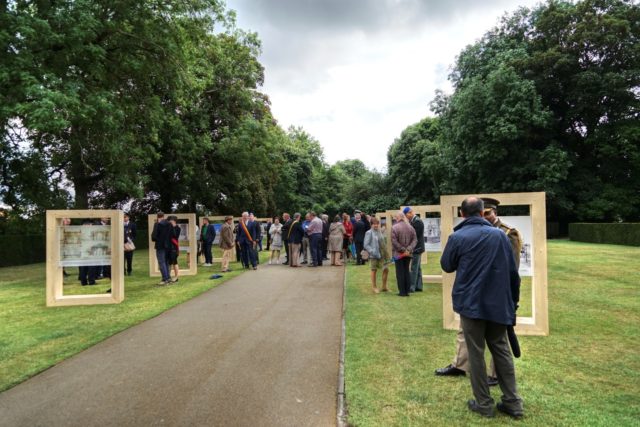
To mark both the CWGC’s Centenary and the 90th anniversary of the Menin Gate, a photographic exhibition has been opened on the Ramparts next to the Menin Gate. The exhibition features images from the CWGC’s archive and gives a fascinating insight into the care of this much-loved monument and the many CWGC war cemeteries in Flanders.
The exhibition will run until the end of September 2017.
